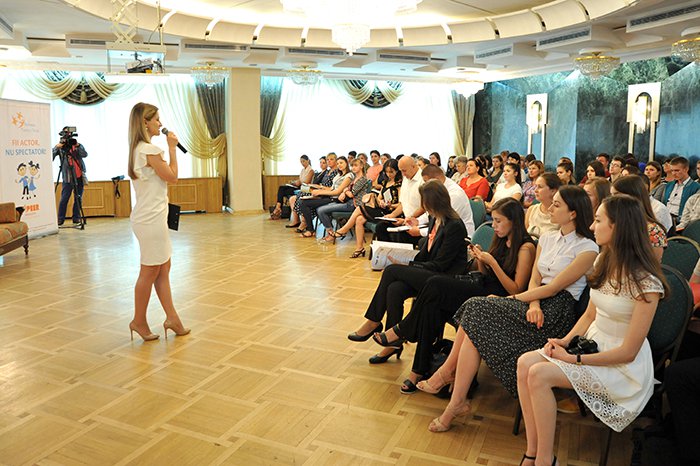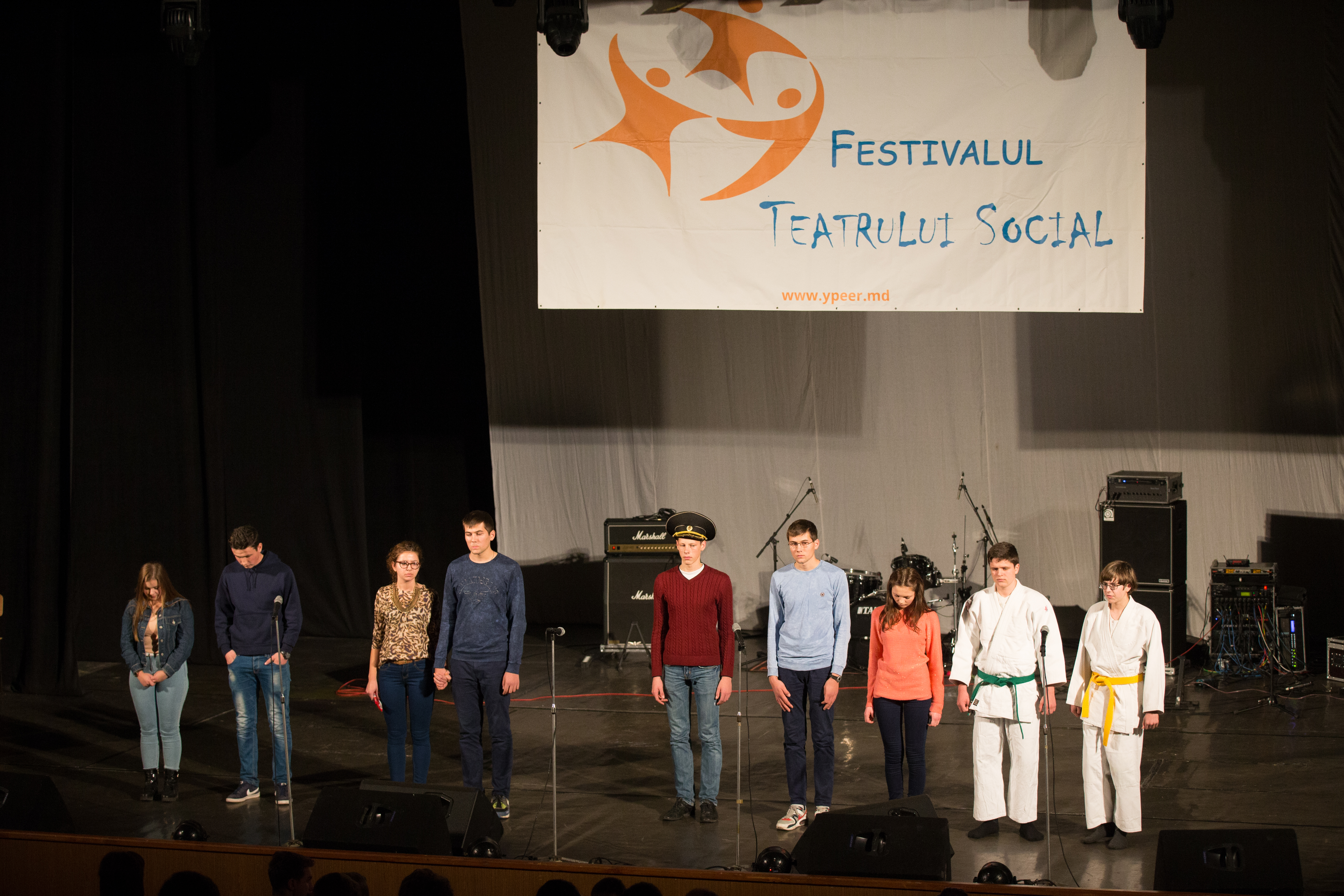Chisinau - Y-PEER Moldova, the peer-to-peer education network, launched today the 2016 National Social Theatre Festival. The Festival is organised in partnership with UNFPA, the United Nations Population Fund, and the Ministry of Youth and Sports of the Republic of Moldova.
Students and teachers from more than 30 schools from all over Moldova, who were selected to participate in the Festival, took part in the launch event.
35 teams of young people were selected to participate in the Festival this year. They will benefit from Y-PEER trainings in the social theatre techniques, but also in the area of sexual and reproductive health. Jointly with teachers and mentors, young people will write the script of a social theatre play, which will be presented in their schools and in the community. Starting with today, the participants will start the preparations for the final event of the National Social Theatre Festival, which will take place on 26th of November in Ialoveni, and will organise activities in their communities.

The plays will be focusing on the following social topics:
1. Sexual and reproductive health of young people, including the prevention of sexually transmitted infections and HIV, unwanted pregnancy, risk behaviours.
2. Violation of sexual and reproductive rights of young people, as well as infringement of right to access the information and quality health services, prevention of discrimination based on gender and sexual orientation.
3. Avoidance of risky behaviours among young people.
10 teams which will create the best social theatre plays and which will comply with the selection criteria will be chosen to participate in the final event on 26 November 2016. It will be held in the Moldova Youth Capital 2016, Ialoveni town.
The National Social Theatre Festival is organized for the seventh consecutive year in Moldova. The purpose of the Festival is to raise awareness of young people through social theatre, as a peer-to-peer education technique, about sexual and reproductive health, and about ways of avoiding risky behaviours.



